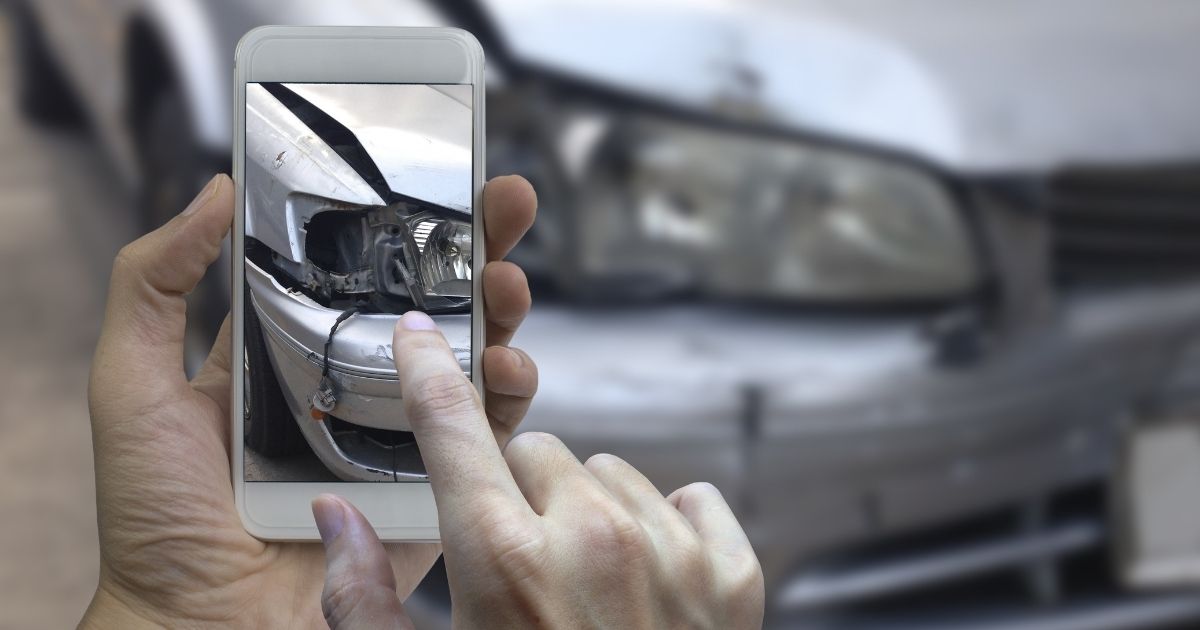MENU
- Home
- Overview
- Attorneys
- Practice Areas
- Firm News
- Blog
- Contact

In the confusion and stress that occurs in the moments after a car accident, it can be nearly impossible to think clearly about what just happened. Even individuals who are sure that their accident was caused by the other driver’s negligence might not be in the mindset to collect evidence.
However, collecting evidence on the scene or shortly after the crash can prove invaluable when trying to make the case that the accident occurred as a result of the other driver’s negligent behavior. Some evidence will need to be collected as the case proceeds.
The location of the accident is the best place to gather the most powerful evidence of what caused the crash. Even for individuals who have to reason to suspect that they might run into problems with their claim, the scene of the accident is where visuals and statements can be accessed and preserved. Anyone involved in an accident should try to collect evidence at the scene if it is possible.
A driver should know what can strengthen a personal injury case. Some key pieces of evidence that should be collected after a collision are listed below.
If everyone is medically stable after the accident, the drivers should exchange identification and contact information. While this information will be made available if an incident report is produced by the responding police officer, exchanging this information can help get a jump on an insurance claim. This information includes the names, addresses, and contact phone numbers of all drivers involved in the crash. It is important to collect license numbers and insurance policy numbers from each driver as well.
Additionally, make note of the make, model, and license plate numbers of the cars involved in the accident. All of this information will help with a claim.
Drivers can jot down the police officer’s name and badge number so they can be contacted if necessary. It can also help to ask for the police report number. All of this information will make it easier to get a hold of the police report, which is extremely important.
It is crucial to document the scene with photographs. Pictures of the cars, their positions, and any damage they received in the crash can help prove negligence and liability.
Photograph anything that reveals adverse road or weather conditions, damaged traffic signs, or any other features that may have played a role in the crash, such as skid marks. Take pictures of visible physical injuries as well.
Like photos, videos can reveal information that was missed. Videos taken after the crash on a smartphone are good to have, but footage of the crash itself can be vital as well. Surveillance videos from homes and businesses in the area might hold this important form of evidence.
Useful information from an outside perspective may also be available in the form of eye witness accounts from people who saw what happened. Whether they were nearby drivers or pedestrians, a statement from each witness can be helpful supporting evidence in an accident case.
Another step that can produce helpful evidence is for the claimant to write down notes about what they remember from the crash. Recording a statement right away is best. As memories fade, the testimony may become obscured. Clear and fresh recollections are most useful.
In the days and weeks after the accident, many pieces begin to fall into place. Proving a claim is likely to depend on a clear understanding of what damages were caused and what the material costs were of those damages. For this reason, claimants should document all medical care they need as a result of the injuries they sustained from the accident.
It is also important for claimants to keep records of how their recovery is going and what treatments, medications, and accommodations are recommended in the future. Keeping all documentation of medical receipts can help with a claim.
Claimants should keep careful records of their conversations with insurance company representatives. An individual should make sure to note the times of calls, who they spoke to, and what was said. This information can be used if the insurance attempts to deny the claim.
In addition to knowing what evidence to collect to support an accident claim, it is also important for claimants to know how to keep the other motorist from building a case against them. While it is hard not to replay the incident and try to figure out what went wrong, talking to the other driver may give them information that they can use.
After an accident, some drivers will talk about what they think happened, but it is important to resist doing this. Even though it may seem polite, do not apologize. Do not blame the other driver either. Just give a truthful and complete statement to the police, and let the evidence speak for itself.
Additionally, claimants should refrain from speaking to friends, loved ones, and neighbors about the incident. It is best to leave speculation out of it. Enlisting a lawyer to do all the talking can help.
It is important to note that car accident victims should never tell the police officer, the other driver, or anyone at the scene that they are unharmed. Some injuries take time to develop, so it may not be possible for them to know right away that they are injured. Saying they are fine may impede a claim.
After a car accident happens, it is imperative to collect as much evidence as possible. Some evidence can even be collected at the scene. For help with your case, speak to a Wilmington car accident lawyer at Jacobs & Crumplar, P.A. today. Call us at 302-656-5445 or complete our online form for a free consultation. Based in Wilmington and Millsboro, Delaware, we serve clients throughout Dover, New Castle County, and Sussex County.